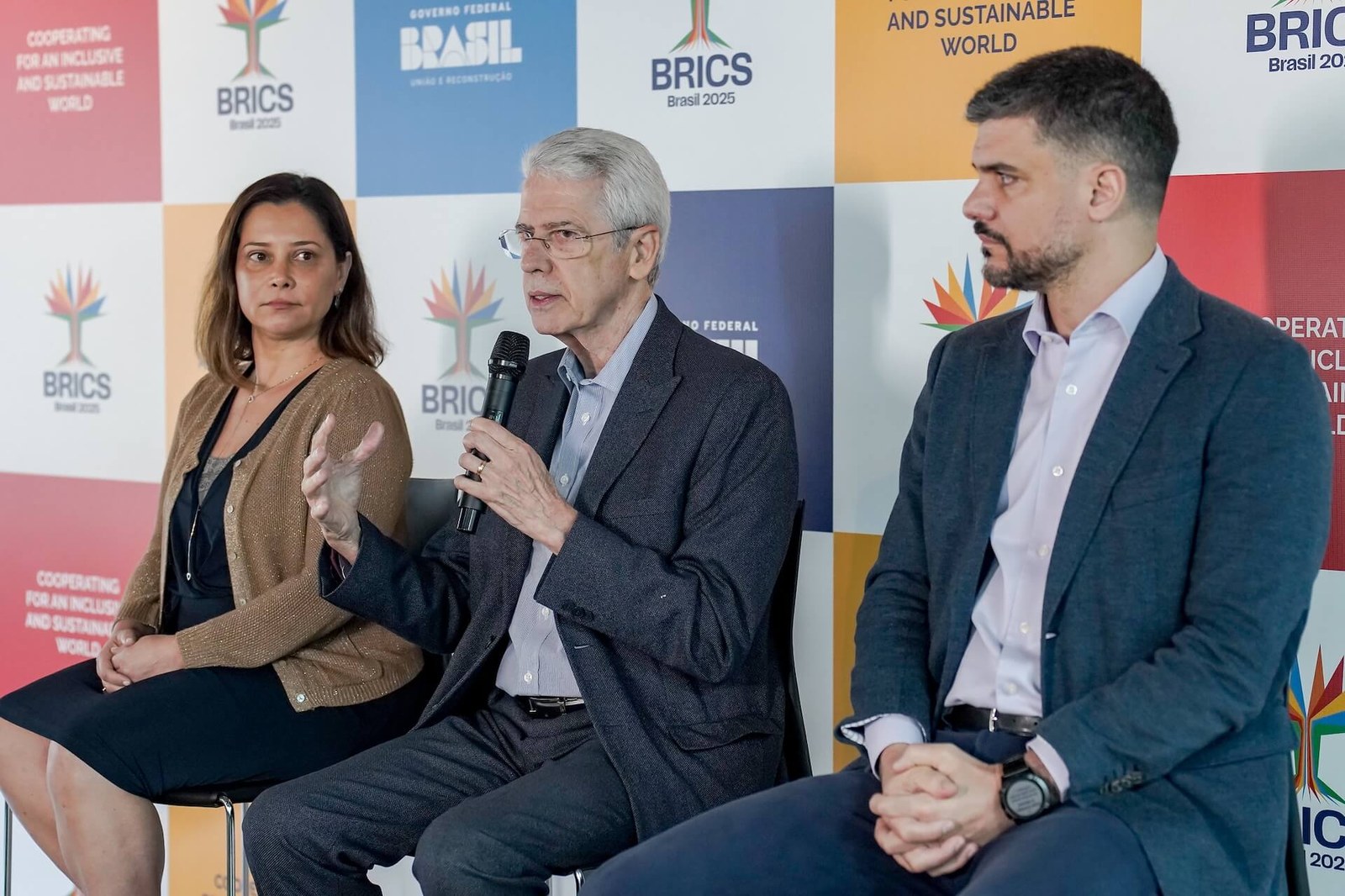Foresight in science and technology guides first BRICS cooperation meeting on science, technology and innovation
Seminar with representatives from 11 countries discusses how technological foresight can guide scientific development in the Global South.

By Maiva D´Auria | maiva.dauria@brics.br
With strategic themes that include artificial intelligence, sustainability, big data integration, and technological foresight—a methodology for prospecting possible futures in the field of Science, Technology, and Innovation (ST&I)—Brasil has taken another step forward in the cooperation agenda among BRICS countries. This week, the Brazilian Ministry of Science, Technology, and Innovation (Ministério da Ciência, Tecnologia e Inovação do Brasil/MCTI) hosted an international seminar on Technological Foresight: STI Opportunities for BRICS Cooperation in Brasília.
Throughout the year, 13 additional meetings—both in-person and online—are scheduled to deepen dialogue and align common strategies. Adriana Thomé, general coordinator of Multilateral Cooperation at the Ministry of Science, Technology, and Innovation (MCTI), emphasized that despite the diverse realities of the participating countries, there was consensus on priority topics for the future of science and technology.
”What stood out to me the most was the convergence around certain themes—particularly the issue of climate change, which appeared in several speeches. This reflects how different countries are concerned with developing technologies to help us tackle the global challenge that affects everyone. This concern is especially relevant this year, as it is directly linked to our next major event in Brasil, COP30.
According to Fernando Rizzo, President and Director of the Center for Management and Strategic Studies (Centro de Gestão e Estudos Estratégico/CGEE), the meeting provided an opportunity for each country to share its experiences in the field of Science, Technology, and Innovation (ST&I), as well as to strengthen the encouragement of multilateral partnerships.
"We observed a convergence among the countries. While some are still in the process of defining directions, strategies, and implementation methods for their projects, others are already at more advanced stages. This is the case of Indonesia and Russia, which are actively engaged in the field of technological foresight. Russia, for instance, has the HSE University—a center of excellence offering robust programs focused on mathematical methods applied to artificial intelligence modeling," Rizzo highlighted.
Indonesia was represented by Boediastoeti Ontowirjo, who introduced the topic of foresight into the discussion through the country's National Development Plan, outlining steps for implementing technological foresight methodologies.
Professor Alexander Sokolov, from Russia's Higher School of Economics (HSE)—the country's leading university and research institute—highlighted how foresight is employed to achieve a collective vision of the future. He cited some of Russia's accomplishments in this field, bringing to the discussion the main trends influencing the development of global science and technology. Sokolov also discussed methods and applications of foresight in artificial intelligence.
The workshop brought together authorities, experts, and global leaders in Science, Technology, and Innovation (ST&I) from the 11 countries that currently comprise the BRICS group: Brasil, Russia, India, China, South Africa, Egypt, Ethiopia, Indonesia, Iran, Saudi Arabia, and the United Arab Emirates.
Technological Foresight
During the debate, Brasil also shared its perspective on how the foresight methodology can guide public policies and strategic decisions in science and technology. For Caetano Penna, Director of the Center for Management and Strategic Studies (Centro de Gestão e Estudos Estratégico/CGEE), technological foresight should be aligned with the concrete needs of the population and the transformative role of science and innovation.
"Foresight is an analysis of the future. In this context, it refers to a study to anticipate trends and identify actions we can take today to achieve goals in science, technology, and innovation. Essentially, it seeks to answer how we can develop technologies to address societal challenges by looking ahead and determining which technologies need to be developed. We must recognize that science and technology should serve the purpose of solving concrete problems and improving living conditions."
Currently, in Brasil, various institutions and research groups are delving into the application of the foresight methodology across sectors such as agriculture, space, aeronautics, tropical medicine, public health and pandemic prevention, pharmaceuticals and cosmetics industries, and petrochemicals.
Among the notable national cases are the initiatives led by two institutions that systematically apply foresight studies in their annual planning and medium- to long-term visions: the Oswaldo Cruz Foundation (Fiocruz) in the health sector and the Brazilian Agricultural Research Corporation (EMBRAPA), which has been publishing scenario studies since the 1990s, focusing on technological evolution and innovative solutions for the sector.
Cooperation and recommendations on foresight
In addition to the workshop, the Center for Management and Strategic Studies (CGEE) is organizing an in-person event in October 2025 with the aim of drafting an official document of recommendations on foresight. This material will seek to provide a set of strategic guidelines on the key opportunities within the topic, focusing on fostering cooperation among the group's countries in the group. It is also intended to serve as a basis for more strategic coordination of International Cooperation in Science, Technology, and Innovation (S&T&I) within the BRICS context, contributing to the strengthening of joint initiatives.
English version: Trad. Ana Carolina Cordeiro Miranda.
Proofreading by Enrique Villamil.